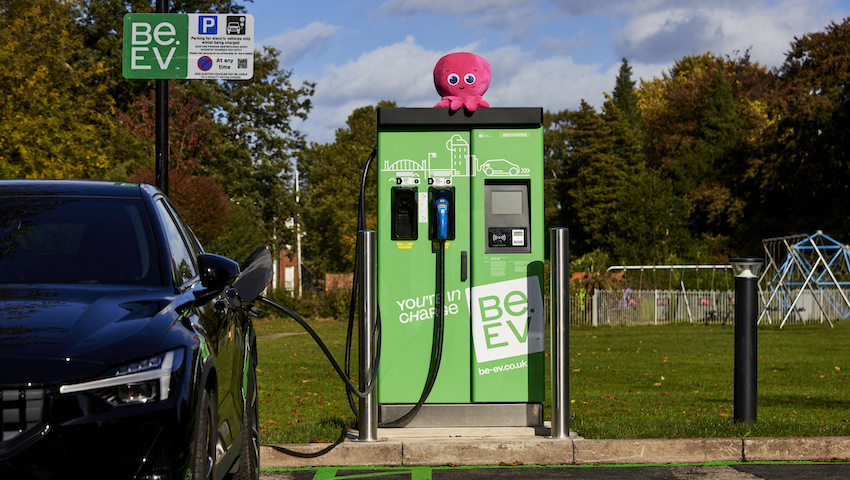Octopus Energy Generation backs Be.EV with £110m investment
Octopus Energy Generation has invested £110m in Manchester-based EV public charging network Be.EV to install new charge points across the UK.
The investment is Octopus Energy Generation’s first in the UK’s electric vehicle charging infrastructure, as it aims to help accelerate the country’s transition to green, electric transport.
Octopus Energy Generation is earmarking up to £110m on behalf of its Sky fund (ORI SCSp) in Be.EV, with the intention of growing the company’s 150-strong public charge point network by another 1,000 chargers across the North of England and beyond by 2024. The move will increase the firm’s charge point coverage by over 600%.
Matt Setchell, co-head of Octopus Energy Generation’s fund management team: “Our first foray into funding EV charging infrastructure is a significant milestone. We’re accelerating the green energy transition, with more deals coming up to turbocharge it. As a nation, we need to rapidly build more EV charge points to meet the growing number of drivers going electric. Easy and fair access to chargers will help phase out petrol-guzzling cars once and for all.”
Asif Ghafoor, CEO and co-founder of Be.EV: “Everybody, not just the wealthy, must be able to make the switch to electric cars but currently people who live outside London or in less affluent areas are underserved by public EV charging. If you live in a flat or terrace, you can’t charge at home. This investment addresses that imbalance and helps kickstart a national infrastructure effort that, for once, doesn’t start in London.
“The backing from Octopus is transformational for us. We have sites lined up and underway that will form dense clusters of chargers that give people the confidence to go electric. We’re also building infrastructure that communities can be proud of, reinventing charging locations as green neighbourhood hubs and developing iconic designs. Octopus’ support means we can take this unique approach to other parts of the country, addressing the imbalance in charging provision across north and south, urban and rural communities.”
